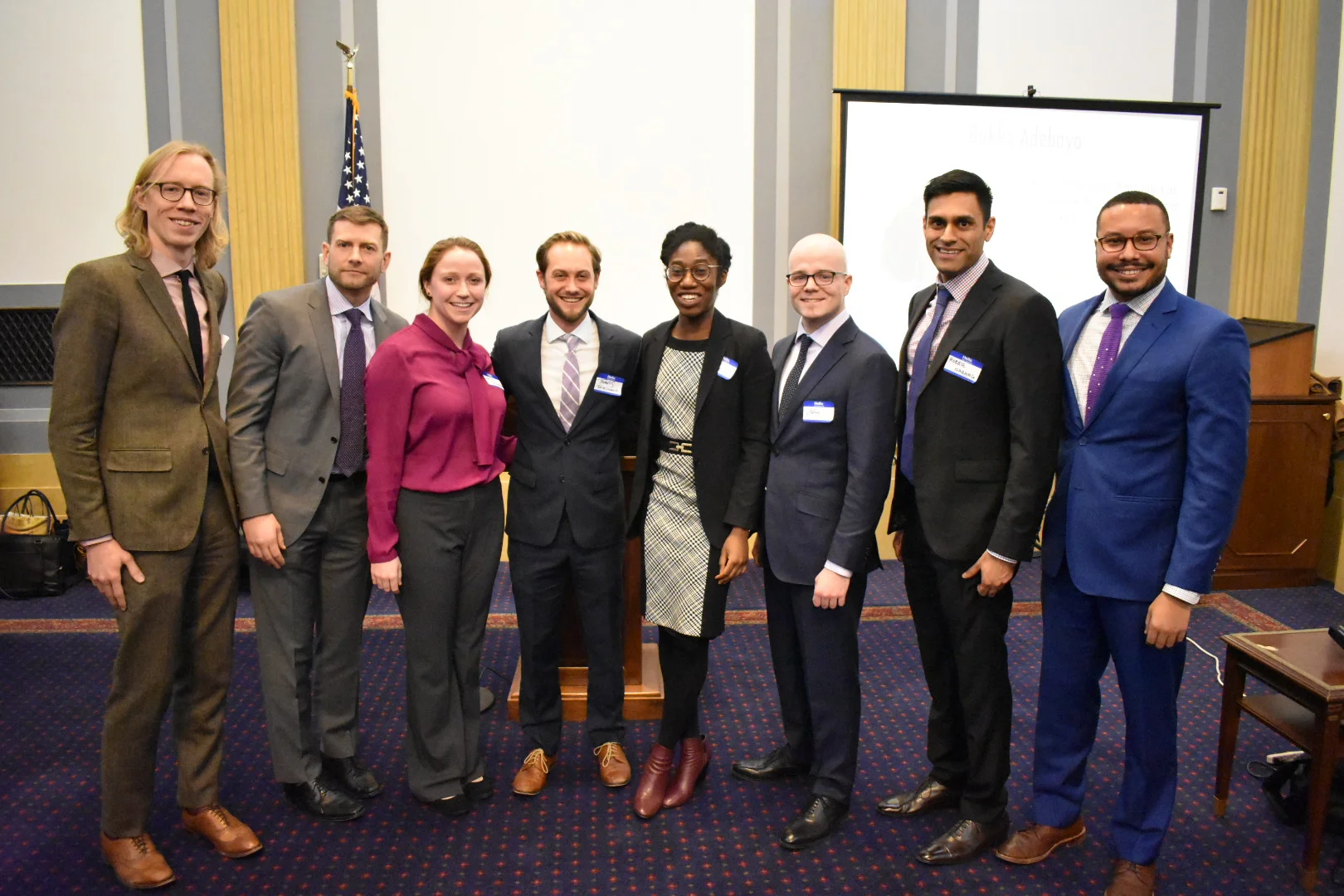At TechCongress, we think it’s important to equip our fellows with the information and expertise necessary to thrive as a congressional staffer. We invest in each of our fellows throughout the recruitment process and develop an orientation that gives the fellows some of the skills that the average staffer compiles over time.
Congressional Innovation Fellowship orientation usually comprises of meetings with Capitol Hill staff, thought-leaders in the D.C. tech policy environment, and outside counsel. For the 2018 orientation, Travis and I decided to partner with the Project on Government Oversight (POGO), which this year launched its own bipartisan fellowship, placing fellows to work in an oversight and investigative capacity. The POGO Fellows joined us for two weeks of four day programming in January 2018.
We felt it was important for the fellows to experience a congressional hearing before they began their placements, so we found a House Foreign Affairs Committee hearing and a Senate Commerce, Science, and Transportation hearing to attend. The Senate Commerce hearing was actually very topical. Titled, “Terrorism and Social Media: #IsBigTechDoingEnough?,” the hearing examined steps social media platforms are taking to combat the spread of extremist propaganda over the Internet and featured witnesses from Facebook, YouTube, and Twitter.
We also set up meetings with experts in the government relations sector, tech and cyber policy environment, and current and former congressional staff. While all of the meetings were productive, the current and former staff meetings proved particularly beneficial, as the fellows had the opportunity to apply what they were learning in one of our workshop exercises. The exercise requires fellows to find a past committee hearing and build a follow up hearing for the Chairperson or Ranking Member-- doing things like building a strategy and message for the hearing, and inviting prospective witnesses and developing lines of questioning for each for multiple Members of Congress.
One other exercise we added this year was having a fellow draft an oversight letter. Fellows took the perspective of a Committee Chairman and wrote a letter to an outside entity, like a federal agency or company. Letters are one of the primary tools in the legislative toolbox for a Congressional staffer, and POGO, which trains Congressional staff on employing these kinds of oversight tools, led a great training.
We decided to add some different programming for the 2018 Class of Congressional Innovation Fellows and host an internal lunch to introduce our fellows to the New America community. The event featured each of our six 2018 fellows and allowed them to introduce themselves to the entire New America team and all of the other programs and initiatives that are housed within the think tank. We also hosted our annual Capitol Hill Launch. A widely attended event, this TechCongress tradition is our introduction of the new class to Members of Congress and congressional staff. Once again, we featured our fellows and allowed them to introduce themselves and connect with congressional staff.
We learned some lessons from our orientation this year, including the importance of giving our fellows some flexibility and focusing more time on their placement with Members of Congress or Congressional Committees. We gave them extra time to talk to offices, allowing them to interview with offices through mid-February, to make sure they found the right fit for the fellowship.
In additional, one of our fellows, Jamie Sternlicht, asked to begin her fellowship later in the year. Jamie was in the middle of a big robotics project, and starting the fellowship in January would have required her to abandon it before it was finished. We offered Jamie the option of starting in June instead of January. This gave her the opportunity to balance the fellowship with her other commitments, and is a good test of whether we can offer another option for start dates for the fellows. At a minimum, it’s an important lesson that giving prospective fellows more lead time to make a decision about the fellowship might be helpful.

